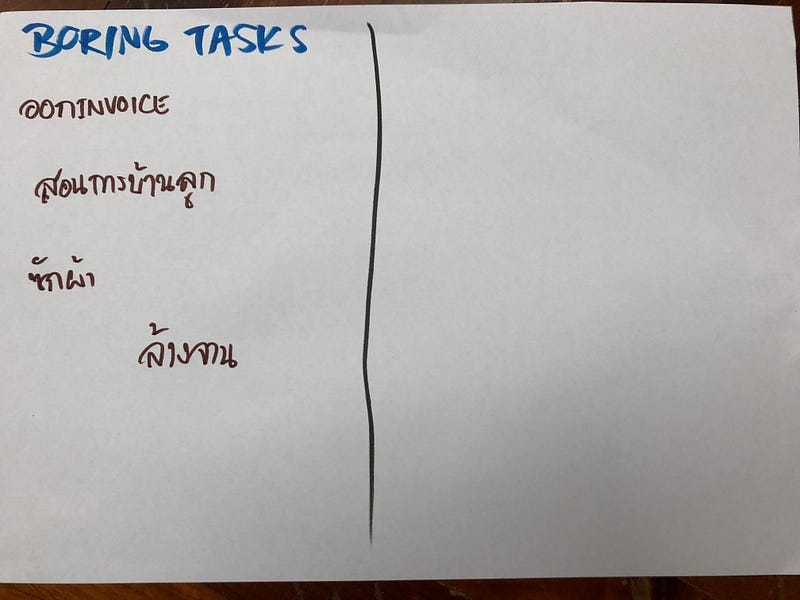Singaporeans, wake up! Why software is eating your island
During the last months, I've been working on this article. It shares stories about the software industry in Singapore and my perspective on why it will have to improve a lot in the future. I've written this article because I've frequently have discussions on the subject, but actually do not have any place where I could publish it. Therefore, if you like it, I'd appreciate suggestions on where would be a good place to publish it (other than this blog). You can find the PDF version of the article here.
--------------------
Title: Singaporeans, wake up! Why software is eating your island
The old-world economies, US and Europe, are losing their advantage in 'old' industries such as consumer electronics and manufacturing, yet many don't seem to be bothered. Why? Even after years of outsourcing, US companies are still the frontrunners in the 'new' industries -- the software-centric industries. But Singapore is missing this boat.
A year ago, Marc Andreessen -- the founder of Netscape, a member of the board at HP and an important venture capitalist -- posted an important and wonderful article in the New York Times "Why Software is Eating the World".1 He describes how software is overtaking traditional businesses. The most frequently-stated example of this is the bankruptcy of Borders Bookstore in 2011 while the online bookstore Amazon.com -- a software company -- is still thriving. Closer to home, the biggest computer bookstore in Funan Digital Mall closed its doors the same year. These days, who buys technical books in a physical store?
In traditional companies, the role of software is changing from supporting the business to becoming the core business. These companies need to re-learn their 'new' core business... or else a new start-up software company will learn their 'old' core business and take over their market and they will end up like Borders or the Bookstore in Funan Mall.
In Singapore, this re-learning will be more intense. Why? In general, Singaporeans do not have an interest in learning or understanding software development (yes, there are exceptions). They'd rather be an analyst, salesman, marketeer, or even better... a manager. These jobs have traditionally been important, well-respected and well-paying but... Singaporeans, wake up! The world is changing. A career in management or sales might not be such a great idea in 2012. Careers in software are of increasing importance and you are missing all of it! If this attitude doesn't change then it will lead to mass unemployment and will seriously hit the Singaporean economy. Am I exaggerating? I don't believe so, please let me clarify.
Poor state of software
Software in Singapore is horrible. I find it unbelievable that companies can get away with badly-designed software of poor quality that isn't functional. Examples?
Singapore Air -- I enjoy ranting about Singapore Air as they provide so much to complain about. In 2011 they 'upgraded' their website. Their new website was so bad that I wasn't able to book a ticket online and I eventually changed airline. At that time, Nicholas Ionides, the spokesman for Singapore Air, reported: "As with any major IT project, we do expect teething problems but we expect to be able to iron out these issues in due course."2 No, Nicolas, projects like your website don't have teething problems, it is just shamefully poorly developed. In May 2012, Singapore Air reported an unexpected loss because of "weak travel demand and soaring jet full prices."3 A month later their site is down because it is "currently experiencing technical difficulties."4 Wonder where the weak travel demand comes from?
But perhaps Singapore Air is an exception? Not really...
Singapore Bank 5 #1 -- Our company used to have an account at Singapore Bank #1. We do all our banking via eBanking and, after a year, we changed bank as their eBanking doesn't support recurring payments -- a feature I had always assumed all eBanking systems had. The bank did always assign friendly relationship managers to us... but they seemed to miss the point: We don't need relationship managers, we need a proper eBanking system.
Singapore Bank #2 -- New bank, which does support recurring payments, yeah! We're switching banks again. Why? Their corporate eBanking can not report detailed real-time credit card information. But that's not all. Their credit card summary statements showed the wrong credit information. The bank even charged us late payment fees as we had paid the credit card based on the on-line information -- the wrong information. Their friendly relationship manager told us to use the paper statements instead, which we had always ignored. We seemed to have been the first customer to notice this huge and obvious bug, but after six months they still had not fixed it. To make matters worse, after six months they had conveniently forgotten about it. We're not sure what bank to choose next.
Singapore Stock Exchange -- A couple of months ago, I was in Hong Kong coaching at an international investment bank. I mentioned the sorry state of software development in Singapore and they all nodded in agreement and sighed. "You won't believe the Singapore stock exchange," they told me, "it is an absolute disaster."
There is hope as the government is promoting software development! Then again, how do most of the government web-sites look?
The case of the missing Singaporean developers
I mean no disrespect to construction workers, however it seems to me that Singaporeans view software development as construction work -- the dirty work done by cheap labor, the dirty work they don't want to do themselves. Every now and then I chat with computer science students and they often express the actual programming as a painful phase in their career which they have to go through in order to get promoted to something better. Promoted to project manager or business analyst -- or other jobs which I personally consider to have no future... but more about that later.
There are companies in Singapore who care about the state of their software. These are usually not Singaporean companies. An investment bank in Singapore which we work with trained all their developers in modern agile engineering practices and hardly any of them is Singaporean. Or, a start-up in Singapore of about 40 people with zero Singaporean developers. Recently, I met with a manager of an international embedded systems company in Singapore. He is Singaporean and I mentioned IDA CITREP subsidy for Singaporeans. He laughed and said that he was the only Singaporean in their team. A friend of mine is a CTO of a finance firm and his policy: "Never hire Singaporean developers as they do not know how to develop."
"Software development is unpopular because of the low salary," I'm often told. Therefore companies hire developers from India, Indonesia, Malaysia, Russia, United Kingdom, United States, France, Holland... But UK, US, and France are not 'low-wage' countries, so what is going on here? I asked exactly this question to a CTO of a finance firm and he replied that the good software developers get paid a lot higher salary than sales, marketing or project management. Why? It is easy to find sales people or wannabe managers but finding good developers is really difficult. Perhaps the low developer salary is a myth?
Talking about myths. Now and then I'm told that all software development in Europe and US is outsourced to low-wage countries. This amuses me as I never forgot the discussion I had with a CTO of a Finnish games company where he explained that the only reason for off-shoring work was that he couldn't find developers locally. Salary and the work environment for software development is good, so good in fact, that according to the Wall Street Journal, software engineer is the best job in the US in 2012.6
Yummy, an island
In January, I was in Shanghai and needed additional heating. A friend and I drove to the nearest electronics mall. I found the perfect heater and told the store assistant that I wanted to buy it. She said it was not for sale. Puzzled I looked for a less perfect one but that one was out of stock. I asked my friend what kind of mall this was -- why don't they sell things? He answered most people buy things online, not in malls!
This fundamental shift will also happen in Singapore. Software is becoming part of the core business of organizations and, with that transition, software development is a core skill to have. But in this fast-paced, software-intensive world, the software developers must deeply understand the business they are working in and work directly with users and customers to create the best solutions. The days of software developers who only understand technology and who wait for analysts to specify the work are over. Software developers need to broaden their skill, understand their domain and remove the wasteful handoff of information from analysts.
Related to this shift is the change in management style often called 'Agile'7 where cross-functional teams work directly with users and customers using short iterative feedback cycles. Some management responsibilities, especially project management, are delegated to these self-managing teams so they can respond quickly to the needs of customers. The team members balance between deep specialization and being enough of a generalist to always move the team forward. This delegation to self-managing teams who balance specialization and generalization makes specialized management jobs such as project manager gradually obsolete.
In Singapore, this shift will be tough as it requires cultural change on three different levels. On an organizational level, organizations need to understand software rather than looking at it as a cost centre which is best out-sourced and off-shored. On a management level, management need to empower people and create inspiring places to work rather than the hierarchy and micro-management control that is unfortunately common in Singaporean companies. And on the national level, we need to create a national culture wherein people chose a software development career rather than considering it beneath them.
Currently Singapore is going in the opposite direction. Universities do not promote engineering careers and the recent, stiffer criteria on employment passes8 will make it even harder to find great software developers. I definitively hope this will not lead to companies pulling their development out of Singapore. If it does then that will definitively take a big bite out of Singapore's old-fashioned economy.
------------
1. http://online.wsj.com/article/SB10001424053111903480904576512250915629460.html
2. Reported in Straits Times
3. Reported in Reuters news (9 May)
4. Reported on Singapore Air website
5. Original names are removed for now as that wasn't the point.
6. http://online.wsj.com/article/SB10001424052702303772904577336230132805276.html
7. http://www.forbes.com/sites/stevedenning/2012/04/09/the-best-kept-management-secret-on-the-planet-agile/
8. http://www.straitstimes.com/The-Big-Story/The-Big-Story-3/Story/STIStory_702077.html




